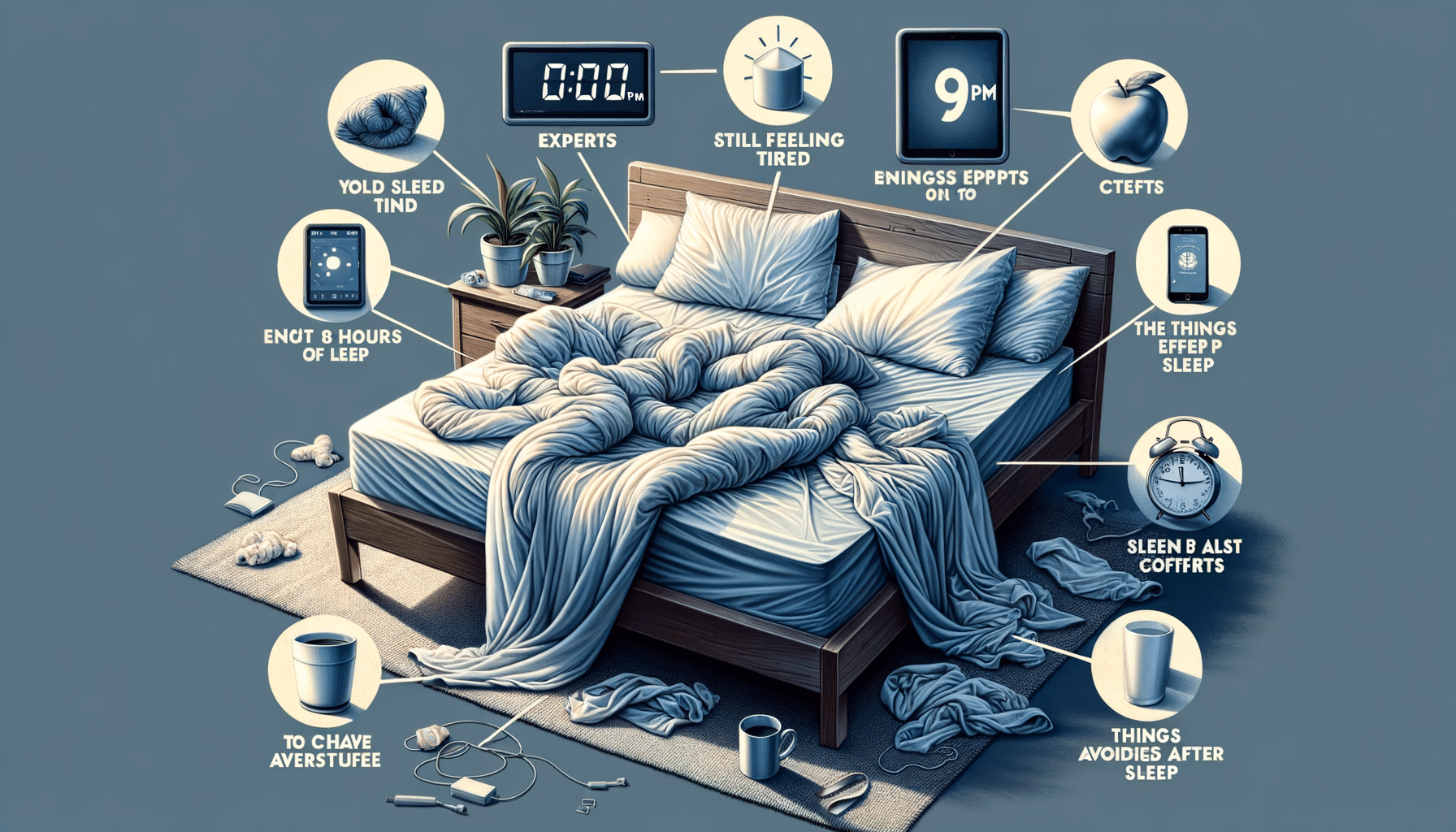
Why You Still Feel Tired After 8 Hours of Sleep—And What Sleep Experts Avoid After 9 PM
Introduction to Sleep Health
Sleep is a fundamental aspect of human health, affecting everything from mood to cognitive function and physical well-being. Despite the common recommendation of eight hours of sleep per night, many individuals still find themselves waking up feeling tired and unrested. This perplexing issue has prompted sleep experts to delve deeper into the nuances of sleep health, identifying key factors that may disrupt rest and offering guidelines for better sleep hygiene. Understanding why you might feel tired after a full night’s sleep can lead to more effective strategies for improving overall sleep quality.
Understanding Sleep Cycles
One crucial aspect of sleep health is the understanding of sleep cycles. Sleep is not a uniform state; rather, it comprises multiple stages that repeat throughout the night. These stages include light sleep, deep sleep, and REM (Rapid Eye Movement) sleep. Each cycle lasts approximately 90 minutes, and experiencing multiple complete cycles is essential for restorative sleep.
Disruptions in these cycles, such as waking up during a deep sleep phase, can lead to feelings of grogginess and fatigue despite having spent sufficient time in bed. Factors like inconsistent sleep schedules, noise, and even stress can interfere with these cycles, making it important to create an environment conducive to uninterrupted sleep.
Factors Contributing to Poor Sleep Quality
Several factors can contribute to poor sleep quality, even when the duration of sleep appears adequate. Lifestyle choices, such as late-night screen time or consuming caffeine and alcohol, can significantly impact sleep quality. These habits can delay the onset of sleep and reduce the time spent in restorative stages.
Moreover, underlying health conditions like sleep apnea or restless leg syndrome can also play a role in sleep disturbances. These conditions often go undiagnosed, yet they can severely affect the quality of sleep. Seeking medical advice and undergoing sleep studies can help identify and address these issues.
Sleep Experts’ Recommendations
Sleep experts emphasize the importance of maintaining good sleep hygiene to improve sleep quality. This includes establishing a regular sleep schedule, creating a comfortable sleep environment, and avoiding stimulating activities before bedtime. Experts often recommend avoiding screens, heavy meals, and caffeine after 9 PM to facilitate a more natural transition to sleep.
In addition to these practices, relaxation techniques such as meditation or reading a book can help signal the body that it’s time to wind down. These habits can contribute to a more restful and rejuvenating sleep experience.
Conclusion: Prioritizing Sleep Health
In conclusion, feeling tired after a full night’s sleep is a common issue that can often be traced back to disruptions in sleep quality rather than quantity. By understanding the intricacies of sleep cycles and identifying factors that hinder restful sleep, individuals can make informed choices to enhance their sleep health. Implementing expert-recommended habits and seeking medical advice when necessary can lead to more energized and productive days. Prioritizing sleep health is a vital step toward overall well-being.